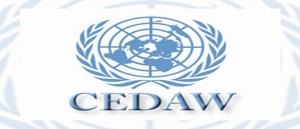-
Advocacy Theme
-
Tags
- Abortion
- Adoption
- Caregiving
- CEDAW
- Disability
- Domestic Violence
- Domestic Workers
- Harassment
- Healthcare
- Housing
- International/Regional Work
- Maintenance
- Media
- Migrant Spouses
- Migrant Workers
- Muslim Law
- National budget
- Parental Leave
- Parenthood
- Polygamy
- Population
- Race and religion
- Sexual Violence
- Sexuality Education
- Single Parents
- Social Support
- Sterilisation
- Women's Charter
AWARE CEDAW Shadow Report 2011
May 20th, 2011 | Muslim Women's Rights, News, Views
By Siti Nadzirah
The Convention on the Elimination of All Forms of Discrimination against Women (CEDAW) is a United Nations (UN) Convention ratified by 185 countries. It is a comprehensive bill of rights for women, covering economic, social and cultural rights, as well as civil and political rights. Singapore became party to CEDAW in October 1995.
Countries who have ratified CEDAW are morally bound to comply with the provisions in the Convention Articles. They also commit to submitting national reports every four years. In July this year, Singapore will be reporting back to the UN CEDAW Committee on the actions the State has taken to ensure equality between genders. Non-governmental groups – like AWARE – also submit a CEDAW Shadow report to provide a more comprehensive picture on the lives and status of women.
I was only exposed to CEDAW when I began volunteering with AWARE. I remember being amazed at the “thick, fat, black book” which was written solely by AWARE volunteers. This was AWARE’s second CEDAW Shadow Report, which was completed in May 2007. Fast-forward four years and AWARE is proud to announce the completion of its Third CEDAW Shadow report.
Now you may think, ‘Why bother with CEDAW?’ and the answer is this – because the Singapore Constitution is not inclusive of ‘gender’ and ‘status’. This means that as a Singaporean woman, I have no constitutional guarantee of equality before the law. For example, it was not until a change in constitution in 2004 that children born to Singaporean women and their foreign spouses were given the same citizenship rights as children of Singaporean men who were married to foreign spouses.
CEDAW raises awareness on the discrimination that a woman can face everyday at the personal and national level. AWARE’s Shadow Report covers all possible scenarios – from the lack of legislation that protects women from sexual harassment to our concern for the lack of support for elderly women who are facing life-long disability illnesses as well as for her family who is caring for her. The report also highlights a few interesting figures:
- Singapore’s female Members of Parliament only make up 21.84 percent or 19 of the 84 seats in Parliament. This is well below the 30 to 35 percent female political representation that the UN deems necessary for women to make an impact in politics.
- Women constitute 51.4 percent of university graduates, but there is a lack of adequate female representation in boardrooms and in Professionals, Managerial and Executive positions.
- The average Singaporean women will not have enough medical savings at the minimum sum of $34,500 at or after age 55.
By writing this report, we are thus sending a message that the State can and should do more to ensure that the rights of Singapore women are observed. It is a violation of her rights if a woman is fired because she is pregnant, or if an abused foreign wife is not keen to seek help as she fears deportation as she is not a Singaporean though she is married to a citizen.
The CEDAW Committee persuades the State to take action – proactive and acts of remedy – through a series of recommendations that it will arrive at the end of the July proceedings. The primary goal is to eliminate discrimination and to ensure that policies promote gender equality. In Singapore, CEDAW Committee’s Concluding Comments in 2007 have led to some changes that include the State raising the minimum age of marriage for Muslim girls to 18 years instead of 16 years; amending laws to improve investigation processes for trafficking, introducing better programmes through TAFEP to minimize discrimination at the workplace, to name a few.
Fundamentally CEDAW helps us to see where our women are and compare our position in our won society with that of women in other countries. It is a great way to track the improvements made as well as to highlight the areas that still need attention.
Personally, I feel heartened that such a convention exists. The fact that it is ratified by so many countries is also encouraging. However, more has to be done – not only by the States who have ratified CEDAW, but also by every woman. The knowledge about CEDAW has to be shared, not only to women, but men too, as CEDAW ‘merely seeks to raise levels of equality’ between genders.
Read more about CEDAW and AWARE’s Shadow Reports here.
Want to be a part of the next exciting phase of our CEDAW project? Join us for a brainstorming session on June 15.




